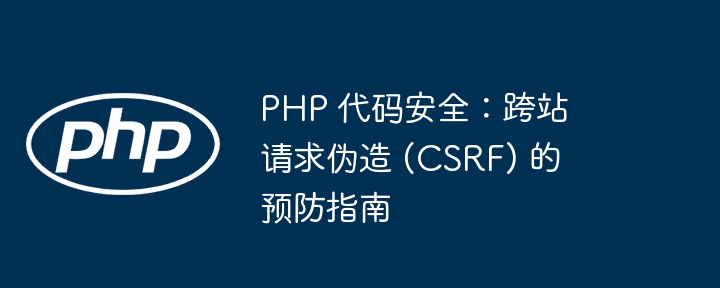在编程中,作用域是指变量可访问的范围。一般来说,一个简单的 PHP 脚本(没有任何结构,如循环、函数等)具有单一作用域,从某种意义上说,变量从定义点开始在整个程序中可用。
变量主脚本也可用于与 include 或 require 语句合并的任何其他脚本。在下面的示例中,主脚本中包含了一个 test.php 脚本。
这是主脚本
$var=100; include "test.php"; ?>
包含的文件test.script如下 -
echo "value of of $var in testscript.php : " . $var; ?>
执行主脚本时,显示以下结果
value of of $var in testscript.php : 100
但是,当脚本具有用户定义的函数时,其中的任何变量都具有本地作用域。因此,函数内部定义的变量无法在外部访问。函数外部(上方)定义的变量具有全局作用域。
实时演示
<?php
$var=100; //global variable
function myfunction(){
$var1="Hello"; //local variable
echo "var=$var var1=$var1" . "";
}
myfunction();
echo "var=$var var1=$var1" . "";
?>这将产生以下结果 -
var= var1=Hello var=100 var1= PHP Notice: Undefined variable: var in line 5 PHP Notice: Undefined variable: var1 in line 8
请注意,全局变量在函数的局部范围内不会自动可用。此外,函数内部的变量在外部不可访问
应使用全局关键字显式启用对本地范围内的全局变量的访问。 PHP 脚本如下 -
实时演示
<?php
$a=10;
$b=20;
echo "before function call a = $a b = $b" . "";
function myfunction(){
global $a, $b;
$c=($a+$b)/2;
echo "inside function a = $a b = $b c = $c" . "";
$a=$a+10;
}
myfunction();
echo "after function a = $a b = $b c = $c";
?>这将产生以下结果 -
before function call a = 10 b = 20 inside function a = 10 b = 20 c = 15 PHP Notice: Undefined variable: c in line 13 after function a = 20 b = 20 c =
现在可以在函数内部处理全局变量。此外,对函数内部全局变量所做的更改将反映在全局命名空间中
PHP将所有全局变量存储在名为$GLOBALS的关联数组中。变量的名称和值构成键值对
在以下 PHP 脚本中,$GLOBALS 数组用于访问全局变量 -
直播演示
<?php
$a=10;
$b=20;
echo "before function call a = $a b = $b" . "";
function myfunction(){
$c=($GLOBALS['a']+$GLOBALS['b'])/2;
echo "c = $c" . "";
$GLOBALS['a']+=10;
}
myfunction();
echo "after function a = $a b = $b c = $c";
?>before function call a = 10 b = 20 c = 15 PHP Notice: Undefined variable: c line 12 Notice: Undefined variable: c in line 12 after function a = 20 b = 20 c =
使用 static 关键字定义的变量不会在每次调用函数时都进行初始化。此外,它保留了之前调用的值
实时演示
<?php
function myfunction(){
static $x=0;
echo "x = $x" . "";
$x++;
}
for ($i=1; $i<=3; $i++){
echo "call to function :$i : ";
myfunction();
}
?>This will produce following result
call to function :1 : x = 0 call to function :2 : x = 1 call to function :3 : x = 2





